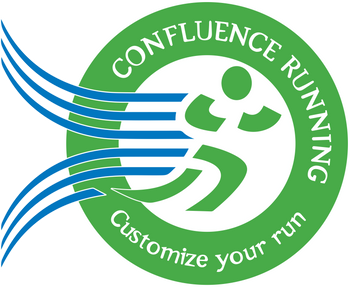Morning Cuppa: Caffeine for Performance Enhancement
Caffeine is a ubiquitous drug that can enhance the body’s chemical processes. When most people think of caffeine, a picture of a mornin’ cuppa joe pops into their mind. When most think of the use of caffeine, so often it is a substance to get jolt of energy in the sleepy time morning or mid-afternoon.
Athletic Performance
But what about caffeine use in athletic performance? Can it be used efficiently? Is it a necessity? Is the use that effective? Yes, Yes, and YES! Major studies have been done on the effects of caffeine on athletic performance and these are some results from Active.com:
“The average improvement in performance is about 12 percent, with more benefits noticed during endurance exercise than with shorter exercise (eight to 20 minutes) and a negligible amount for sprinters. More benefits are also noticed in athletes who rarely drink coffee, hence are not tolerant to its stimulant effect.”
Recovery
Caffeine can not only be an effective tool in athletic performance, but athletic recovery as well. Because caffeine speeds up chemical body processes, it inherently speeds up the time it takes for the body to repair itself from previous workouts. Additionally, Caffeine can increase the effects of carbo-loading for race weeks. Read Caffeine used as a Recovery agent for a more in-depth analysis.
Register now for the Bridge Run Half Marathon and 5k!
Legality
But is this legal in endurance sports? Again, Yes! In the ITU, USAT,as well as USATF rules it explicitly states that Caffeine is NOT a banned substance and can be used in competition.
How about ethically? Is it wrong? This is a matter of opinion but I believe it is not wrong. Caffeine is widespread, available to everyone, and is generally not harmful (extra high doses can trigger anxiety attacks and such).
According to the New York Times, “Caffeine, which is legal under International Olympic Committee rules, is the most popular drug in sports. More than two-thirds of about 20,680 Olympic athletes studied for a recent report had caffeine in their urine, with use highest among triathletes, cyclists and rowers.”
Dosage
So what is the proper dosage of this drug? Studies show that fewer than 2mg of Caffeine per kg of body weight has no athletic enhancing effect while over 6mg of Caffeine per kg of body weight actually hurts athletic performance.
Source
Where to get it? Your first thought is probably “coffee.” While this is easily the quickest and cheapest way to obtain caffeine, studies show that caffeine in coffee may not be utilized as effectively as other sources. While this may be true, other options include eating 1000 calories of 90% dark chocolate (I love chocolate but let’s not get carried away), tea, or caffeine pills. Personally, I’ll take a few more ounces of the joe’ to compensate.
How to use caffeine efficiently?
When used on a regular basis, the effects of drugs on the human body tend to diminish over time. This is no different for the use of caffeine. Those who use it as a wake-up call every morning are going to see less pronounced effects.
While I haven’t found any studies pertaining to the tolerance effect of caffeine, I recommend scheduling it’s use sparingly (not daily) based on trial and error experience. I find that the athletic enhancements of caffeine diminish greatly after using the drug three or more days a week. Use caffeine twice a week on Lactate/Aerobic Threshold and VO2 Max days to enhance training performance. Three weeks before an “A” race, use is cut down to once a week to break tolerance levels so there is a greater effect during race week.
Schedule caffeine use on days with higher carbohydrate intakes for maximal carbo-loading. A study from the Journal of Applied Physiology (July 2008) found that glycogen levels were substantially higher with carb/caffeine ingestion as opposed to just carb ingestion. Most endurance athletes would call this glycogen storage “carboloading.”
Example for a Build week in Triathlon
|
Monday |
Tuesday |
Wednesday |
Thursday |
Friday |
Saturday |
Sunday |
|
90min Ride
90minSwim |
2 Hour VO2Max Run |
90min Run
90min Swim |
2.5 Hour LT Ride (Long Sets) |
90min Ride
60min Swim |
60min Swim |
2 Hour Weighted Run |
|
|
Caffeine |
|
Caffeine |
|
|
|


